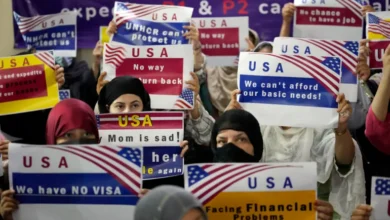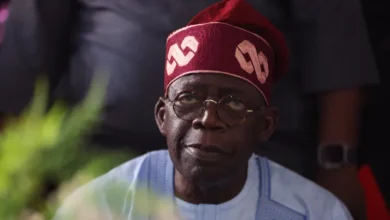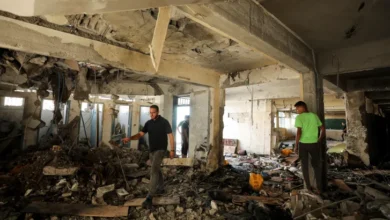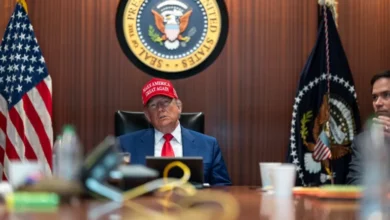Charged for saying ‘I love Muhammad’, India’s Muslims decry gov’t crackdown
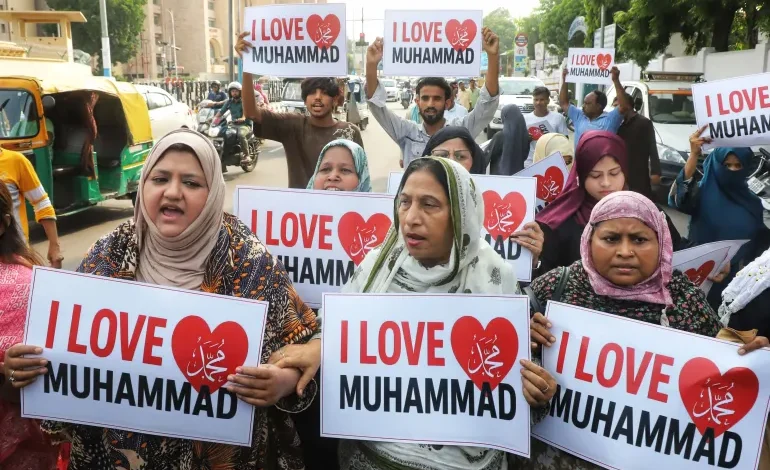
On the evening of September 4, an illuminated signboard lit up a predominantly Muslim neighbourhood in Kanpur, an industrial town in India’s northern state of Uttar Pradesh.
The signboard said: “I love Muhammad” – with a red heart standing in for the word, love.It was the first time the mainly working-class residents in Kanpur’s Syed Nagar had put up such a sign as part of the decorations as they joined millions of Muslims around the world to celebrate Prophet Muhammad’s birthday.
The day, marked as Eid Milad-un-Nabi across South Asia, involves the faithful organising religious gatherings, Quran recitations, and sermons about the prophet’s life and teachings. At some places, the celebrations include mass processions, with people carrying posters to express their love and reverence for the prophet.
In Syed Nagar, however, as soon as the words glowed, a group of Hindu men swooped in, objecting to the celebration. Police were called in, and following a ruckus that lasted hours, the signboard was removed late that night.
Charges related to promoting enmity between different religious groups, as well as deliberate and malicious acts intended to outrage the religious feelings of another community, were filed against nine Muslim men and 15 unidentified people from Syed Nagar. No arrests have been made so far.
“All religions have equal rights under the constitution,” he told Al Jazeera. “But the sign was put up at a location where our Ram Navami decorations are usually displayed. Everyone has a right to follow their religion, but new traditions should not be started in new locations.”
But the Muslim residents of Syed Nagar say the signboard was put up at a public place they converged at every year for the prophet’s birth anniversary.
“We had official permission for the decorations. Everyone has the right to practise their religion under the constitution,” said a 28-year-old resident who is one of those charged, unwilling to reveal his identity over fears of further action by the government.
MA Khan, the lawyer for the accused in Kanpur, told Al Jazeera that the Muslim men were also accused of tearing a banner of the Hindu community during the Eid Milad-un-Nabi procession on September 5.
“Many of those named were not even present in the procession,” he said.
‘Disturbing communal harmony’
Uttar Pradesh is home to 38 million Muslims – more than the entire population of Saudi Arabia – comprising nearly 20 percent of India’s most populous state. Since 2017, the politically crucial state has been governed by Yogi Adityanath, a hardline Hindu monk known for his anti-Muslim speech and policies, and a prominent politician from Prime Minister Narendra Modi’s Hindu majoritarian Bharatiya Janata Party (BJP).
Days later, the spark from Kanpur ignited a fire some 270km (168 miles) away, in another Uttar Pradesh town called Bareilly – headquarters of the Barelvi sect of Sunni Muslims, who number between 200 million to 300 million across the world.
On September 10, the state police registered a first information report (FIR) against nine Muslims in Bareilly, including a religious scholar, accusing them of “disturbing communal harmony” and starting a “new tradition” that threatened public order.
On September 21, Maulana Tauqeer Raza Khan, chief of a Muslim group called Ittehad-e-Millat Council (IMC) and descendant of Imam Ahmed Raza Khan, the founder of the Barelvi sect, announced a protest over the FIRs filed in Bareilly and Kanpur, and urged his supporters to gather at a ground after Friday prayers on September 26 to denounce the police action.
The district administration denied Khan permission for the rally.
On September 25, the IMC issued a statement asking people not to gather for the protest. But hours later, Khan’s supporters allegedly circulated a social media message, claiming the IMC statement was fake and aimed at defaming the Muslim body.

